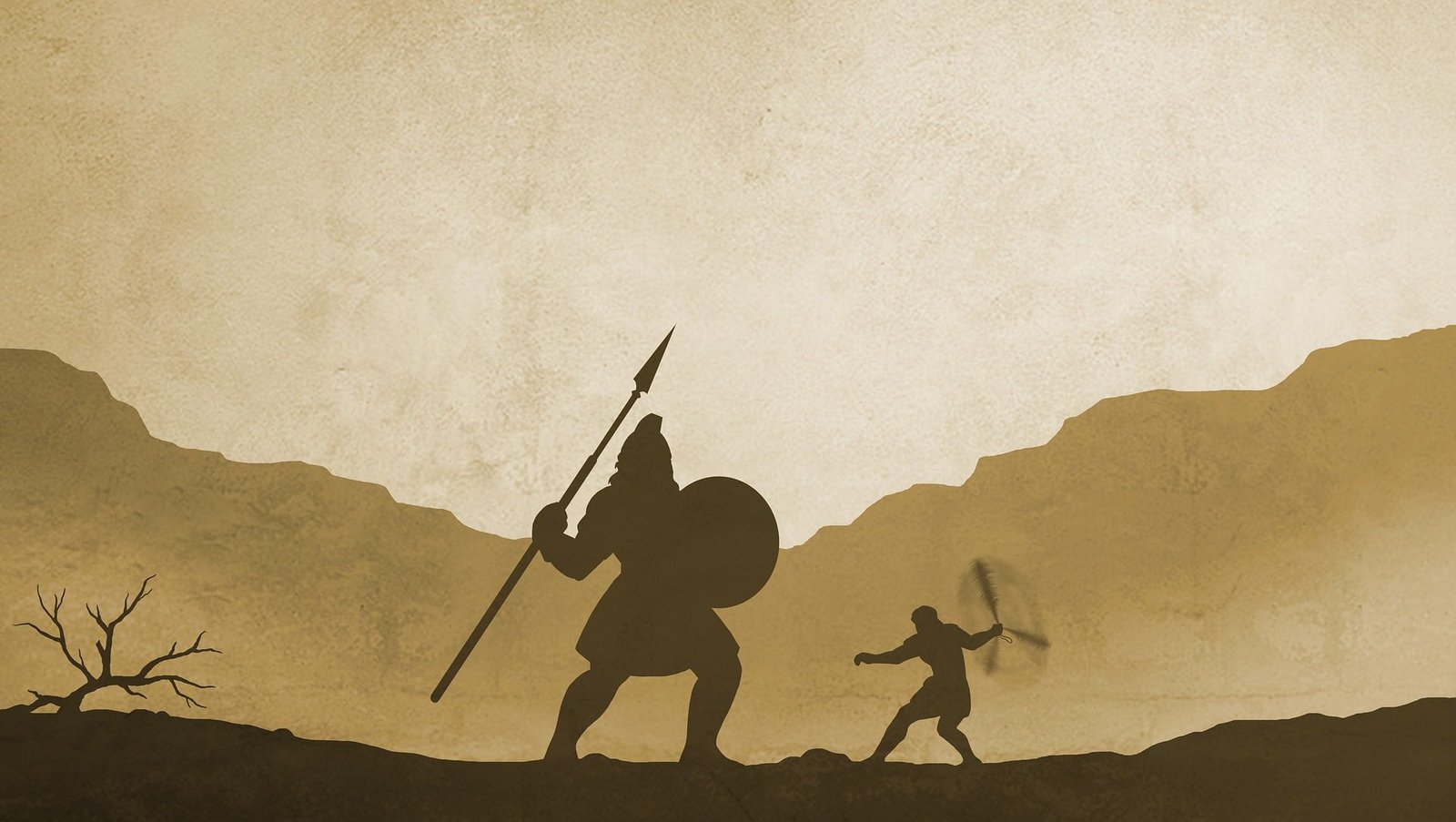David and Goliath is one of the first stories children learn in Sunday School.
David, using a well-aimed stone, felled the giant. As he stood over Goliath, dead at his feet, perhaps David assumed this was the worst enemy he would ever face.
He could not have known in the Israelite ranks behind him was the man who would hunt and hound him for so long—King Saul whose gratitude mutated into jealousy and suspicion.
After Saul made several attempts on David’s life, he fled, eventually ending up in the land of the Philistines—Israel’s enemies.
Acish, King of Gath, welcomed David and gave him the town of Ziklag.
David began fighting the Amalekites, Achish’s enemies. When the chiefs of the Philistines united their forces into one army, David and his men took their place at the rear of Achish’s forces. When the Philistine leaders observed him, they would not allow David, their enemy, in their midst. Achish sent him back to Ziklag.
When David arrived, he found the city destroyed. The Amalekites had burnt Ziklag, taken the flocks, herds, women, and children, and left. David’s two wives were among the captives. The Israelites wailed in despair and threatened David, whom they blamed for this misfortune.
These were people in an extreme state of distress. Observe these five responses.
Strong
I Samuel 30:6. …David encouraged himself in the Lord his God.
By this point in time, David had fought wild animals [I Samuel 17:34-36], killed Goliath, and eluded Saul (twice sparing Saul when he had the chance to kill him). He had found God faithful.
Samuel 30:8-9 And David enquired at the Lord, saying, Shall I pursue after this troop? Shall I overtake them? And he answered him, Pursue: for thou shalt surely overtake them, and without fail recover all. So David went.
Steady
v. 10 But David pursued, he and four hundred men: for two hundred abode behind, which were so faint that they could not go over the brook Besor.
“Steady” [the 400]—people who, encouraged by leadership, assume responsibility for themselves. These are the faithful who can be counted on no matter what.
Staggering
v. 9 So David went… and came to the brook Besor, where those who were left behind stayed… for two hundred abode behind, which were so faint that they could not go over the brook Besor.
Sometimes the “steady,” for a variety of reasons, begin to stagger. Everyone comes to this point at one time or another. When this happens, you have to “remain by the brook.” Lay aside responsibilities, ask for help. There is no shame in this. When David returned to the brook where the 200 staggering stayed, he insisted on sharing the spoils with them.
Isaiah 41:1 Keep silence before me, O islands, and let the people renew their strength: let them come near; then let them speak: let us come near together to judgment.
Starved
v. 11-12 And they found an Egyptian in the field, and brought him to David, and gave him bread, and he did eat; and they made him drink water…and when he had eaten, his spirit came again to him: for he had eaten no bread, nor drunk any water, three days, and three nights.
This Egyptian had been taken prisoner by the Amalekites. When he became ill on the march, they left him to die. David could have threatened this Egyptian to get him to talk, but what the poor fellow really needed was food. Once his physical needs were met, he was able to help David.
I John 3: 17 But if anyone has this world’s goods and sees his brother in need, yet closes his heart against him, how does God’s love abide in him?
Stranded
v. 18 And David recovered all that the Amalekites had carried away; and David rescued his two wives.
Those who had been captured were completely incapable of helping themselves. They had no choice but to wait for rescue. There will be times you must simply sit still and hope until deliverance comes.
***
David’s fight with Goliath was not a one-time victory. He fought giants the rest of his life. Among them were his own king, his own son, and his own self.
Giants come in all sizes. Sometimes we can fight them alone, but sometimes we need a friend to fight on our behalf.
If you are strong and steady today, look around for those who are staggering, starved, or stranded, and lift them up.
No one need fight the giant of distress alone.




Thank you, Holly. This is so relevant fore today. I shared this with David. He’s lost his job because of this virus and I’m praying this will encourage him.
Thanks, Tina. I love this chapter and very few commentaries include it as a key event in David’s life. Especially significant for your “David.”
Amen, Our God is faithful and just. Thank You Holly appreciate you .
Thanks, Sharon. I’ve always loved this chapter.